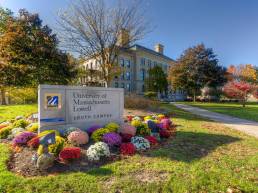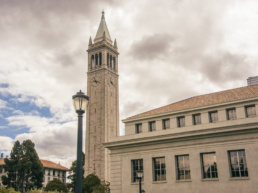Bárbara Direito and Nuno Medeiros were chosen by the jury and students of Brown University to teach a chair in the reputed Department of Portuguese and Brazilian Studies of this institution, considered one of the best higher education institutions in the United States.
The jury was composed by António Costa Pinto, coordinating researcher at the Institute of Social Sciences of the University of Lisbon,Onésimo Teotónio Almeida, professor and researcher at the University of Brown,and Cristiana Bastos, anthropologist and researcher at the University of Lisbon. Professor Elsa Henriques, FLAD administrator, chairs the jury.
The choice of these two teachers took into account the quality of curricula, the experience of teaching in English and the relevance of the programs of the subjects proposed by the candidates.
Bárbara Direito is a researcher at the Interuniversity Center for the History of Science and Technology of NOVA School of Science and Technology, where she develops research on veterinary policies in territories of the former Portuguese colonies in Africa. He has been interested in different themes related to the history of colonialism in Mozambique in the 20th century, particularly in the areas of agrarian history, history of medicine and environmental history, on which he has published in national and international journals.
In the autumn semester of the 2022/2023 school year, Bárbara Direito will teach a chair on the intersection of environment and health in colonial Africa from the late 19th and early 20th centuries, using the cases of the former Portuguese colonies – Angola, Cape Verde, São Tomé and Príncipe, Mozambique and Guinea.
In the spring semester of 2022/2023, it will be the turn of Nuno Medeiros, Associate Professor of Culture and Communication at the University of Lisbon.
Nuno Medeiros will teach a chair that intends to explore the processes of cultural production in the regions where the Portuguese language is spoken, and how this cultural production can be interpreted and compared, to reveal forms of circulation, connection and tension between objects and practices in these different contexts of the Portuguese language during the twentieth century, including in its colonial and postcolonial configurations.
Congratulations and good work!
Related Posts
March 25, 2025
Note of Condolence – Charles Buchanan (1934-2025)
March 24, 2025
Applications Open: FLAD/Saab Visiting Professor at UMass Lowell 2026
Portuguese professors can apply to…
March 17, 2025
FCT and FLAD sign new protocols with the University of California
The objective is to promote academic…


